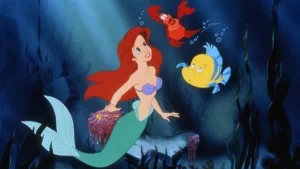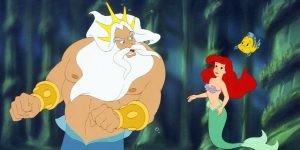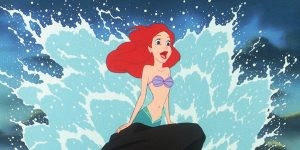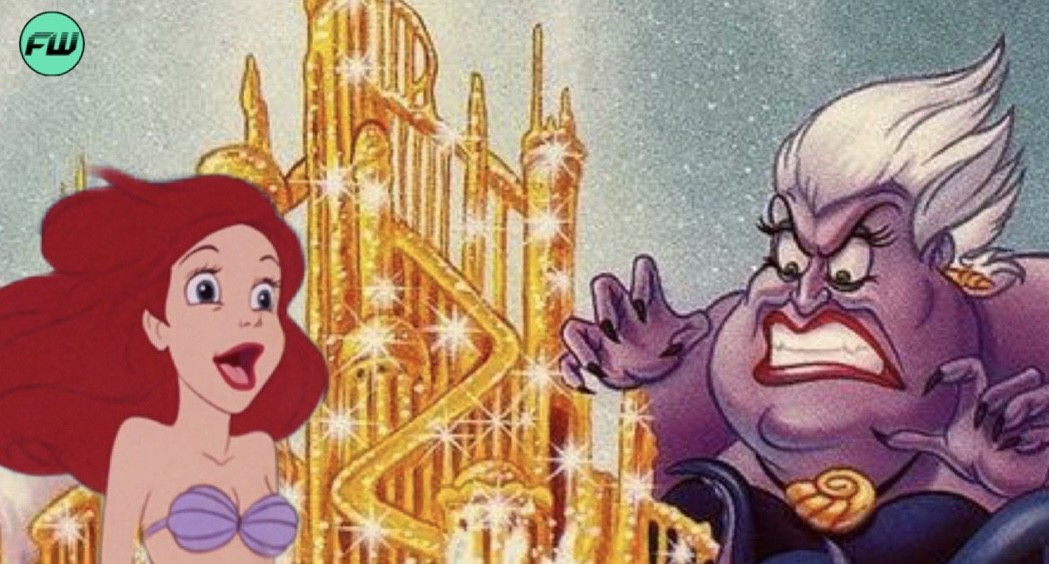The Little Mermaid is the most recent in Disney’s long-running tradition of remaking their animated classics in live-action. Financial success aside, these remakes often come under fire from both critics and audiences. Whether it be those posing legitimate questions about the necessity of remaking stories that already worked so well, especially when placing them in a hyper-realistic setting they were never designed for, or trolls screaming about whichever culture war issue they’re obsessed with this week; nobody tends to be pleased with them. However, one positive of the Disney remakes that most can agree on is that they provide a built-in excuse to revisit some of the best animated films of all time.
Case in point, while the upcoming live-action The Little Mermaid has drawn ire both from those critiquing it in good faith and those who are just mad that Ariel is black now, its existence creates the perfect opportunity to re-watch the classic 1989 animated version.

Also Read: “No One Surpassed This” Director Rob Marshall Saw “Hundreds of People” Audition For Halle Bailey’s Role
There’s a lot to love about The Little Mermaid (1989). From its gorgeous backgrounds and expressive character animation to its heartwarming story and iconic soundtrack, it’s easy to see why the film is so beloved by so many, and why it spelled the end of Disney’s so-called “Dark Age” and the beginning of its Renaissance period. As such, there’s a lot that could be discussed in looking back on it over 30 years later. How the film’s storytelling influenced Disney Animation as a whole, the elevation of the music, why Eric is the best Disney prince by a mile; but one thought in particular kept sticking out to me throughout this viewing: 1989’s The Little Mermaid is extremely queer.
I understand that this isn’t exactly a fresh take. Queer readings of The Little Mermaid have existed for about as long as the movie itself and are practically baked into the text. Howard Ashman, a gay man and longtime Disney composer, co-wrote the film’s soundtrack and Ursula’s character design was heavily influenced by the drag queen Divine. Ariel as a trans woman is one of the most popular head canons on the Internet and it’s even speculated that the author of the original fairy tale, Hans Christian Anderson, was a closeted trans woman who wrote Ariel as a self-insert character. I am aware of all this and that I am not breaking new ground when I say that The Little Mermaid is a deeply queer narrative.
But viewing The Little Mermaid for the first time since my own public coming out as a trans woman and a lesbian, I found the film’s queer themes to be that much more present and harder-hitting. At the start of the movie, Ariel is shown neglecting the rigid role set for her by her father in favor of exploring the world and culture of a people her society has deemed too dangerous sight unseen. She knows it’s not what she’s supposed to do, even feeling guilty about missing the concert, but she can’t help but feel called by it. She can’t explain it, she just knows it feels right. This speaks to a common experience for LGBTQ+ individuals. Even if you know this isn’t what society expects from you, even if a part of you wants to ignore it to avoid being a disappointment, you know deep down that you have to embrace it.

Also Read: Scarlett Johansson Trolls The Little Mermaid Haters, “Will Be Pre-Buying Tickets” To Halle Bailey Movie
This is further enhanced by Part of Your World, a song about Ariel wanting desperately to belong to this other world she’s read and learned so much about, an experience that is deeply relatable to people across the queer spectrum but especially to trans people. As a trans woman, I can think of many times when I was still closeted that I secretly fantasized about turning into a woman, wearing feminine clothing, and finding that sense of belonging even if I didn’t fully understand why.
The popular The Little Mermaid song also speaks to Ariel feeling tired of living vicariously through stories and trinkets and wanting to actually do something to be part of this world, which feels almost exactly like how I was feeling right before I finally accepted I was trans. And while I’m lucky enough to have a supportive family, the scene where Triton destroys Ariel’s collection in an effort to “get through to her,” couldn’t help but bring to mind horror stories of homophobic and transphobic parents ripping up and even burning LGBT-friendly books and gender-affirming clothing. Even Ariel losing her voice for a large chunk of the film emphasizes these queer themes; both in how LGBTQ+ people can often feel silenced by society and in how trans people specifically, especially trans women, often try to avoid talking due to voice dysphoria and/or worries about their voice giving away that they are trans.

That’s not to say this reading of the film is perfect or applies to all aspects of it. Everything I’ve talked about here is entirely subtextual and open to interpretation, especially given that we’re discussing a mainstream family film from 1989 directed by two straight cisgender white men. Plus, Ursula’s role as the person who first gives Ariel direct access to her new world is questionable at best when reading the story from a queer lens.
But I still think there’s plenty to be gained from a queer reading and given the direct influences from LGBTQ culture mentioned earlier, I don’t think these themes were accidental. The Little Mermaid is a near-universally beloved film that speaks to universal truths about growing up, wanting more out of life, and even finding love. But I think part of what makes it so special, and part of what the remake has to live up to, is how it speaks to the struggles and goals of the all-too-often marginalized LGBTQ+ community not with scorn or derision, but with empathy, compassion, hope, and most importantly, pride.
Follow us for more entertainment coverage on Facebook, Twitter, Instagram, and YouTube.

